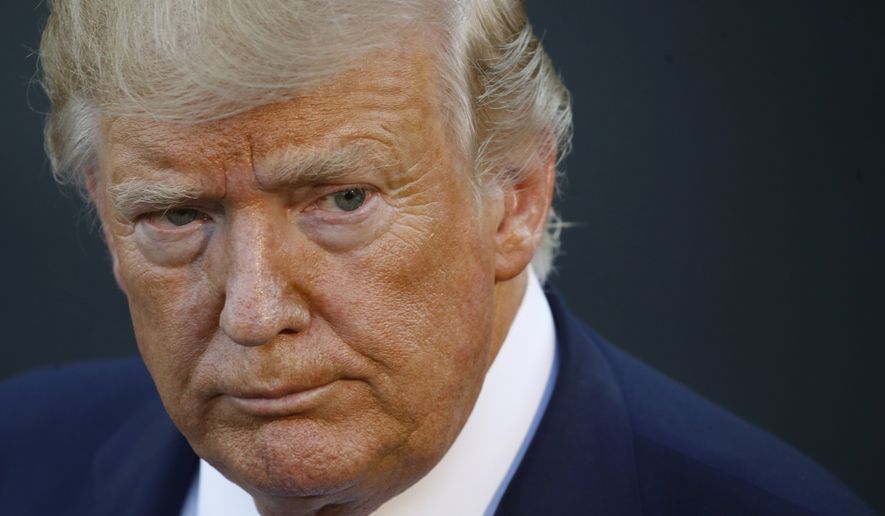A challenge to President Trump’s ties to his family-owned properties may end up in the Supreme Court just in time for next year’s elections, court watchers predict.
It could take months for the conflict to play out in the lower courts before the Supreme Court grants a review, leaving the issue ripe for consideration during the 2020 campaign season, they say.
A federal appeals court revived a lawsuit Friday against Mr. Trump, saying restaurant and hotel owners in New York and Washington should be able to challenge the president’s business interests linked to his luxurious hotels.
The lawsuit, filed by people in the hospitality industry, appealed a lower court’s dismissal, after the Southern District of New York said the challengers didn’t have a specific injury to substantiate their legal claim that the president violated the Emoluments Clause of the Constitution. The provision is meant to prevent government officials from receiving benefits and gifts from foreign interests.
Josh Blackman, a professor at South Texas College of Law, anticipates the Justice Department will ask the full 2nd U.S. Circuit Court of Appeals to reconsider the panel’s move to allow the case to proceed, but he noted that could drag on for months.
“I don’t expect this case will reach the Supreme Court until closer to the 2020 election,” he told The Washington Times.
The plaintiffs have argued they’re financially harmed when foreign and domestic government officials go to the Trump-owned establishments instead of their own places of business. One restaurant, Amali in New York, said it has had a noticeable decline in government business since the 2016 election, resulting in lost wages, tips and profits, according to court documents.
The lawsuit seeks to force the president to divest himself from the Trump Organization.
“The complaint sufficiently alleges that plaintiffs compete directly with Trump establishments and that the president’s allegedly illegal acts favor plaintiffs’ competitors,” Judge Pierre N. Leval, a Clinton appointee, wrote for the appeals court.
The 2-1 decision doesn’t decide whether the president violated the Establishment Clause, but it revives the legal conflict, allowing the plaintiffs to proceed in the district court.
Judge John M. Walker Jr., a George H.W. Bush appointee, dissented, saying the case should have been dismissed. He cautioned the courts to avoid the legal battle since it’s highly political.
“This case is deeply political and thus finds itself in an area where federal courts ought to tread lightly,” the judge wrote. “President Trump was democratically elected by the American people — and he was elected with his business holdings and brand prominence in full view.”
The 2nd Circuit’s decision conflicts with the 4th U.S. Circuit Court of Appeals, which dismissed a similar lawsuit brought by attorneys general in a Maryland court in July. Last month, they filed a new petition, asking the full 4th Circuit to rehear the case.
The 4th Circuit, in its ruling, questioned why the lawsuit was brought in the first place, suggesting political motives moved the case beyond a federal court’s jurisdiction.
Judge Leval shot back at the dissent and the 4th Circuit’s ruling, which are substantially the same, saying those opinions focus on the lawsuit being “politically motivated.”
“While it is certainly possible that these lawsuits are fueled in part by political motivations, we do not understand the significance of that fact,” Judge Leval wrote. “Whether a lawsuit has political motivations is irrelevant.”
A split among circuit courts typically gives a petition for a Supreme Court review a “much better than average chance of success” for being granted, according to Ilya Shapiro, who publishes the Cato Institute’s Supreme Court Review.
“On the other hand, the court may not want to insert itself into such a politicized case,” he added.
• Alex Swoyer can be reached at aswoyer@washingtontimes.com.




Please read our comment policy before commenting.